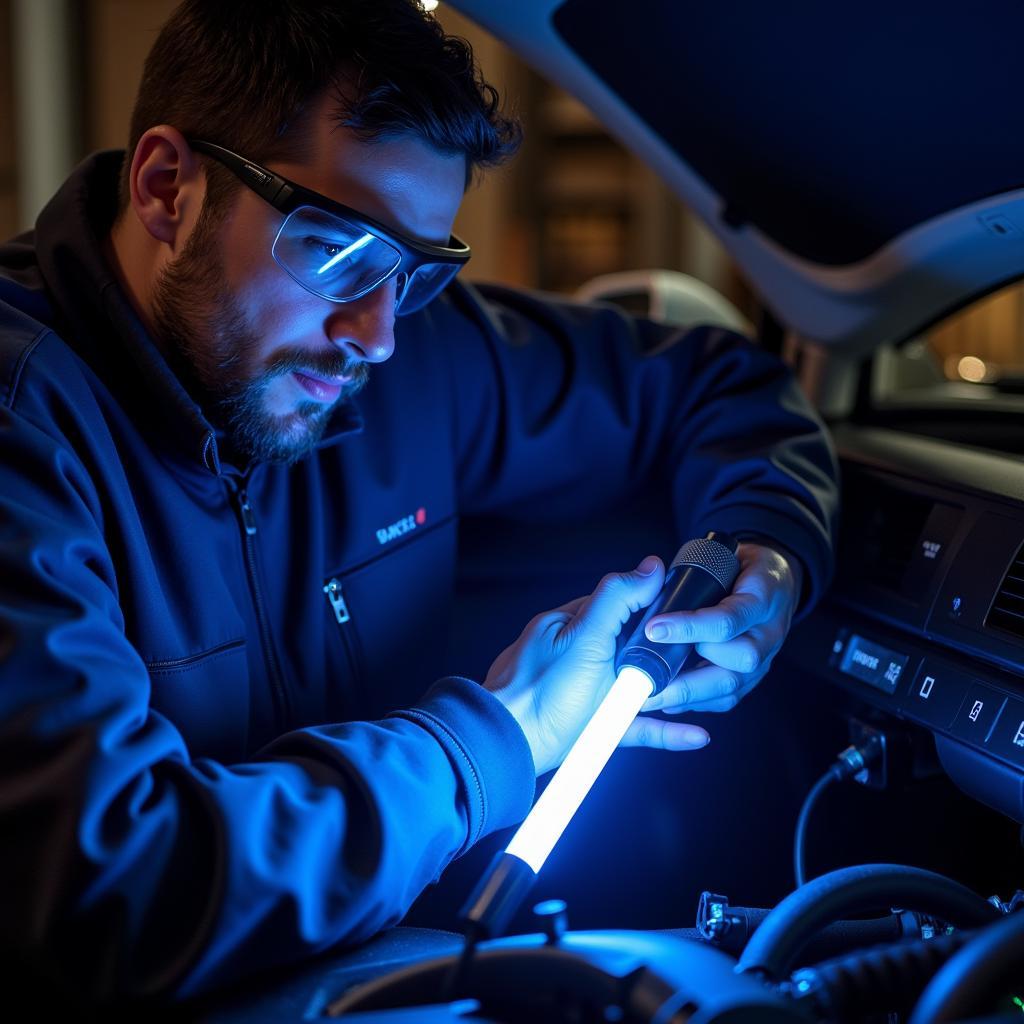Keeping your car cool during the summer months is essential, not just for comfort, but also for your safety. A malfunctioning air conditioning system can quickly turn your car into a sauna, making driving unbearable and potentially dangerous. Luckily, with a good understanding of how your car’s AC system works and the right tools, you can often diagnose and fix minor issues yourself using a car air conditioning repair kit.
Understanding Your Car’s AC System
Before diving into repairs, it’s helpful to understand the basic components of your car’s AC system:
- Compressor: This is the heart of the system, compressing and circulating refrigerant.
- Condenser: Located at the front of your vehicle, the condenser cools and condenses the refrigerant from a gas to a liquid.
- Evaporator: Positioned inside the dashboard, the evaporator converts the liquid refrigerant back into a gas, absorbing heat from the cabin in the process.
- Receiver/Drier: This component stores refrigerant and removes moisture from the system.
- Expansion Valve: The expansion valve regulates the flow of refrigerant into the evaporator.
Common Car AC Problems and Solutions
Several issues can arise with your car’s AC system, many of which can be addressed with a car air conditioning repair kit:
-
Refrigerant Leak: One of the most common issues is a refrigerant leak.
Signs of a leak include a gradual decrease in cooling performance and a hissing sound when the AC is on. A car air conditioning repair kit typically includes a sealant that can seal small leaks in hoses and O-rings. -
Clogged Condenser: A dirty or clogged condenser can restrict airflow, reducing cooling efficiency.
You can use a condenser cleaner, often included in a repair kit, to remove debris and improve airflow. -
Electrical Issues: Problems with the AC compressor clutch, fuses, or wiring can also prevent your AC from working properly.
While a repair kit might not include electrical components, it can help you diagnose these issues.
Choosing the Right Car Air Conditioning Repair Kit
When choosing a car air conditioning repair kit, consider the following:
- Type of Sealant: Ensure the kit includes a sealant compatible with your car’s refrigerant type (R-134a or the newer R-1234yf).
- Application Method: Some kits use a simple injection method, while others require connecting gauges and hoses.
- Additional Components: Some kits include additional components like a gauge, hose, or adapter for added convenience.
DIY vs. Professional Repair
While a car air conditioning repair kit can be a cost-effective solution for minor issues, it’s important to know your limits. If you’re uncomfortable working on your car’s AC system or suspect a more complex problem, it’s always best to consult a qualified mechanic.
Conclusion
A properly functioning air conditioning system is crucial for a comfortable and enjoyable driving experience, especially during warmer months. A car air conditioning repair kit can be a valuable tool for addressing minor AC problems yourself. However, always prioritize safety and don’t hesitate to seek professional help when needed. By understanding your car’s AC system and using the right tools and information, you can keep your cool on the road.



